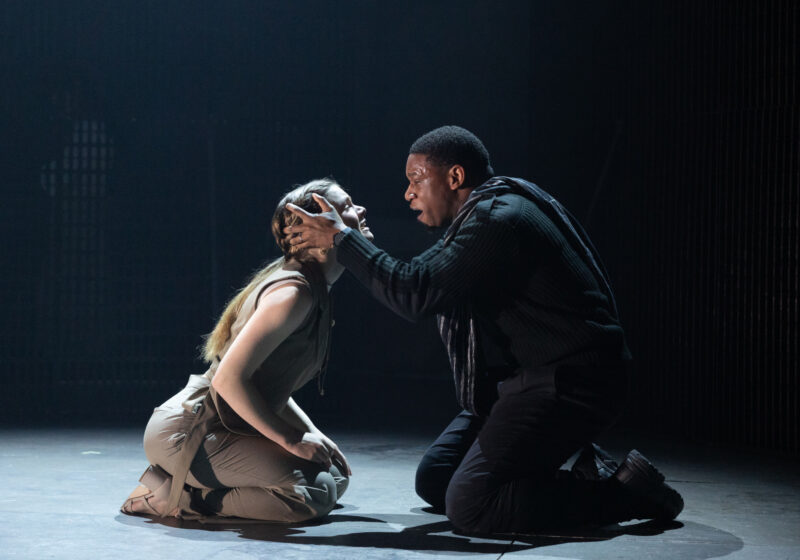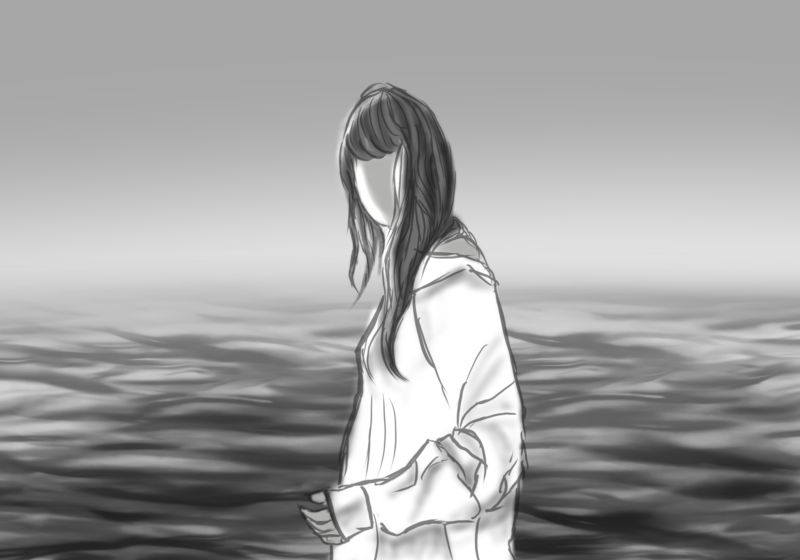Prior to entering Strong Auditorium for the lecture by Emmanuel Jal, all I knew was that he was a child soldier in Sudan and that today he’s a popular hip-hop artist. As I came to see, the lecture was autobiographical in the sense that he spoke about his life from his childhood until now and shed light on the truths behind his complicated youth. Before speaking, he asked students sitting in the back of the auditorium to move forward and take up open seats in the front rows, so we could feel closer together.
Then, he performed a poem, entitled ‘Forced to make a living, carrying an AK-47/Sometimes I do wrong in order to make things right.” I say performed because this was no poetry reading; he gave his words feeling. One could feel the rifts of his voice upward and downward as he injected emotion into each line he delivered. Then, just as quickly as he started, he finished, and silence hung in the auditorium as he walked back toward the podium to begin his life’s story.
Jal was born into a war-ravaged Sudan, and as he described portions of his life, it was clear that sacrifices were made. His father, a policeman, left his family to escape assassination for his involvement with the government. His mother, a nurse and teacher, moved him and his siblings into the deep south of the country to live with his grandmother. He spoke of ‘bombs exploding, animals running everywhere” and the undeniable chaos by which his country was engulfed.
Without knowing whom to trust, Jal spoke of constantly being on the move himself. And yet, he spoke of a time when his mother slept on the floor with her children and said, ‘Don’t worry; God will watch over us and Jesus will take care of us.”
At age seven, he left his family with about 30,000 other boys as part of a caravan to Ethiopia to ‘attend school.” He described their walking at night and how they were frightened of being attacked by wild animals, how they often heard screams coming from the bushes and how boys disappeared each night. Others died of starvation; their journey ‘could be traced by the skeletons of dead bodies from our villages to Ethiopia.” While this image was one of darkness, he also commented on the pre-made food they ate, branded with the American flag and the letters U.S.A. ‘I’m going to go to where this food comes from someday,” he said.
When they reached the school, it wasn’t what they expected. Jal and the other survivors were drafted by the Sudan People’s Liberation Army to be trained in combat; they became war children. But the prospect of fighting and learning to defend oneself was not rejected by most, including Jal himself; he was in pain. He saw the boots and guns of soldiers and was intrigued they seemed so strong and he wanted to be strong himself. He wanted to avenge his family, his home and find out how his mother died years earlier. ‘It was the bitterness and hatred that kept me going,” he said.
When he returned back to Sudan, he mentioned bouts of desperation and moments of resourcefulness. Without food, people ate whatever leaves and plants were around, even if being poisoned was the result. Others, who were hit by landmines, would kill themselves to stop the pain. And others still were driven to the edge of sanity.
‘You become a wild animal,” Jal said. ‘Someone’s sitting next to you, they smell like food and you want to eat them alive.”
In time, his life changed for the better. At age 12, he was smuggled into Kenya by Emma McCune, a British aid worker. He spoke of the culture shock of living in a city with running water, with animals that just sat around and did nothing; he didn’t understand the concept of pets. Using the bathroom was another new experience for him. He recollected, saying, ‘How did they get the river to come up into the bowl and take the waste away?” He got into trouble at school and claimed that the girl he felt attracted to was putting spells on him. ‘Wow, I came to study and this girl bewitched me,” he said. ‘She wants me to fail out of school.”
Jal spoke about how Tupac and The Notorious B.I.G. influenced him and how he started rapping because of them. In time, a hit in Kenya earned him international airplay, leading him to do what he does today: speak and perform around the world, tell his story and inspire others.
When asked about whether he reached higher education, he said he had wanted to be an electric engineer in Britain, but because the government in Africa refused to renew his visa, his ‘dream was crushed.” But he went on to say that ‘music has taken me in a way I never thought possible.”
The last thing he said summarized the entire evening well. He commented on other major figures that influenced him, like Martin Luther King Jr. and Nelson Mandela, and how he couldn’t originally understand how they approached the world in a peaceful way. ‘Why did they choose peace, talking and love when all of the people were suffering?” he asked. But to answer that question, he had to come to terms with his own past of hatred and bitterness toward the people that tore apart his nation.
He concluded, ‘When you forgive, as a person, you’re free.” And that’s a sentiment I believe everyone can relate to.
Siegel is a member of the class of 2012.





